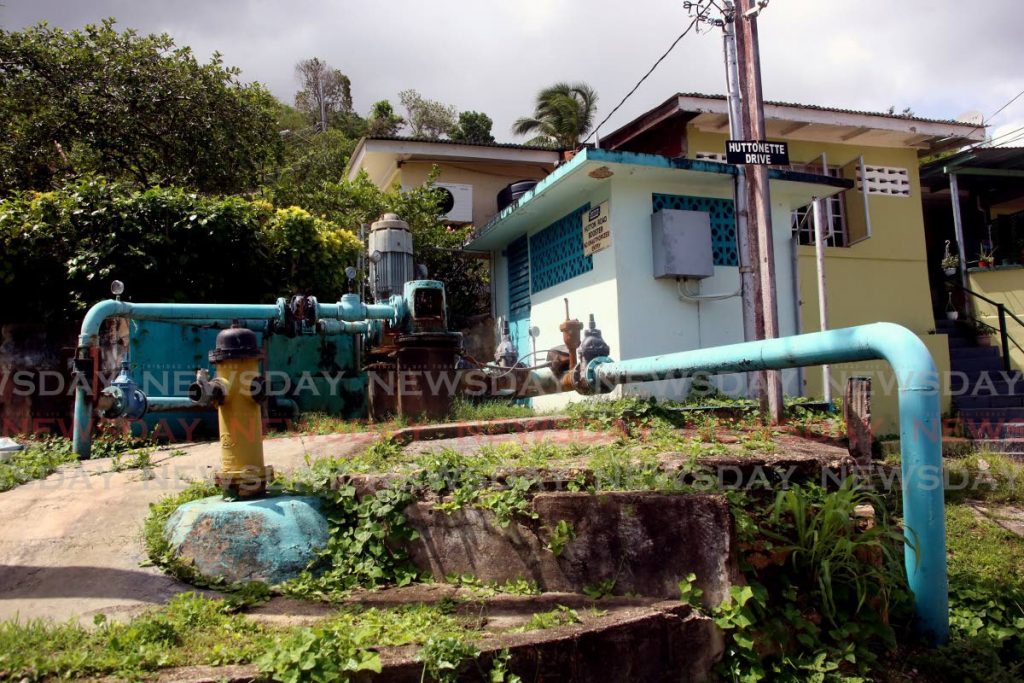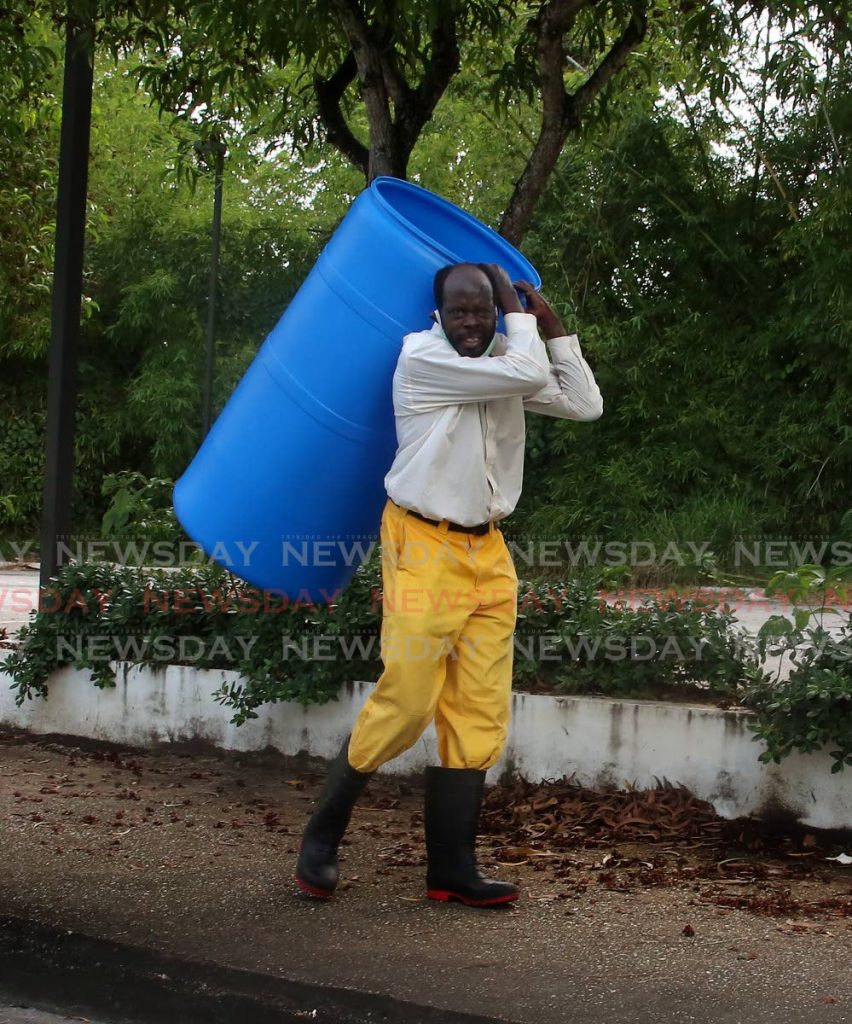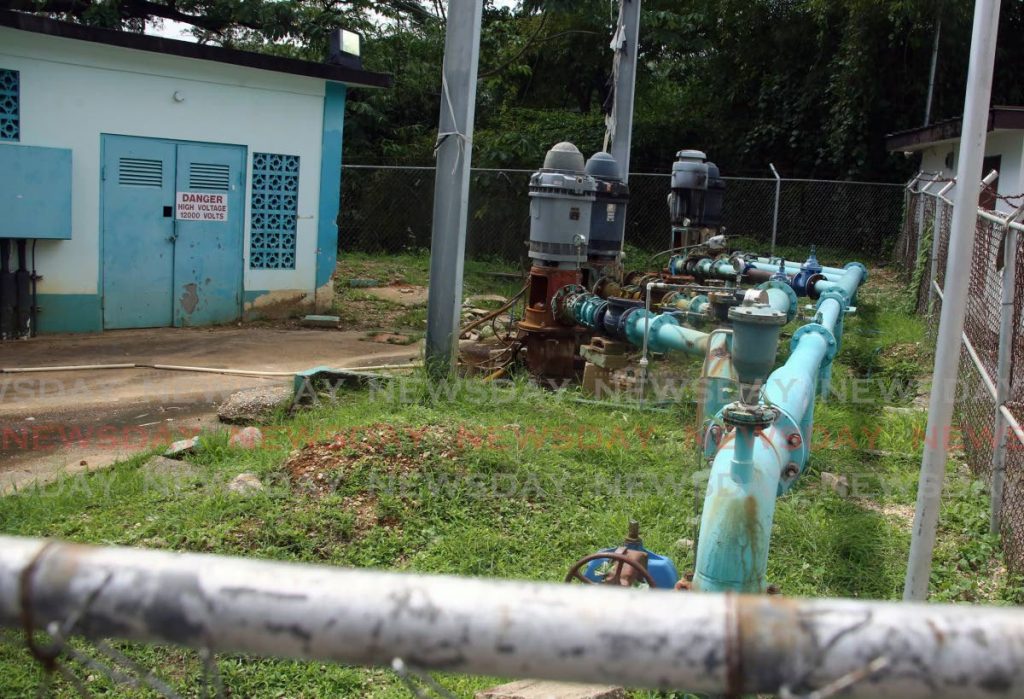St Ann's, Cascade cry out for water

Their incomes may vary widely, but there's one thing residents of St Ann's, Cascade, Mt Hololo and Lady Chancellor Hill have in common: a chronic shortage of water, and the supply appears to have grown worse in recent months and years.
Those without storage tanks are less likely to have a steady flow of water. But even those in apartment complexes and gated communities considered to fall into within middle to high-income brackets are affected, They share large but inadequate water tanks on their compounds, and the supply has to be strictly rationed when there is little or no water in the mains for days.
In fact, Newsday was told about people considering moving out of these otherwise desirable properties entirely because of the water issues.

Peggy Small, a resident of Cascade who also manages two gated communities in the area, told Newsday one person who has already considered such a move is a doctor, who frequently – but reasonably – complained about his inability to bathe and clean his scrubs in between his shift – a fact made more alarming in light of the covid19 pandemic.
Small said, "We see all the water trucks every time an area has a water issue. The whole of Cascade area is problematic, and the higher up you go, (it gets) worse.
"We received water about two days ago, but water goes constantly.
"And all on the hillside, sometimes weeks and months they don't get water...I just saw one (water truck) up Pomme Rose, that's another development. They didn't have water for a long while. When Riverside (Road, at the foot of Mt Hololo) has water, down on the flat, they don't have for weeks and months. So I don't understand that."
WASA's customer care service is reportedly often overwhelmed with phone calls from St Ann's and Cascade begging for water. Small said some of her contacts at WASA and water-supply truck services were reliable, and genuinely empathised with the residents' situation – but were not in a position to address the root of the problem.
Newsday called WASA's line for information on water scheduling and was put in a queue of 30 people. Attempts to reach another line specifically for water-supply queries led to another queue, of 26 callers.
Residents who own water tanks have to call WASA or one of its registered water delivery companies for trucks to deliver water.
WASA customers receive this water at no extra charge. However, the water delivery is done privately, adding to the authority's mounting debt.
A resident of upper Ariapita Road in St Ann's, who asked not to be named, described the water problems as "everlasting," particularly for those living on the more hilly terrain.
She said she also could not recall a time when residents from varying parts of St Ann's all had a consistent supply of water at the same time.
"They are not coming from the same place, of course. What it shows me is that the supply is never working at full capacity. Something somewhere is always broken. When you call WASA, there is always some story. "
Last week, Public Utilities Minister Marvin Gonzales, together with ministry and WASA management, visited Cascade and Moka to discuss water problems with residents.
Gonzales listened and offered a seemingly promising solution, giving them insight into a "Water Stabilisation and Improvement Plan" which he said would be submitted to Cabinet within two weeks of his visit.
The plan is designed to "bring relief to several parts for the country, now experiencing challenges in receiving a reliable water supply," as described in a media release issued afterward by the Public Utilities Ministry.
Gonzales has put WASA under particular scrutiny since taking office, most notably in March, when he detailed "rampant corruption" at the state enterprise as he laid in Parliament the report of a Cabinet sub-committee assigned to investigate WASA last year.
The ministry's media release said the water improvement plan is intended to "bring relief to several parts of the country, now experiencing challenges in receiving a reliable water supply," which could be interpreted to include Cascade, St Ann's, and environs.
WASA's release said the improvement plan is "part of a three–pronged approach to improve the reliability of water supply to the citizens of Trinidad and Tobago."

The other two areas, it said, are "the transformation of the water utility, WASA, and the development of new sources of water in order to increase the supply capacity to the country."
In the media release, Gonzales acknowledged that many water treatment plants around the country are in disrepair, "thus preventing customers from receiving a regular water supply."
He said attention must be given to rehabilitating both plants and wells, as it will "reduce the country’s dependence on desalinated water which places a financial burden on citizens due to its high production cost."
Gonzales also visited the Chatham and La Fortune Water Treatment Plants, which the release said, "allowed him to witness first-hand the challenges plaguing South Trinidad's water supply so that the relevant recommendations can be made, as the Government of TT seeks to transform water service delivery in the country."


Comments
"St Ann’s, Cascade cry out for water"